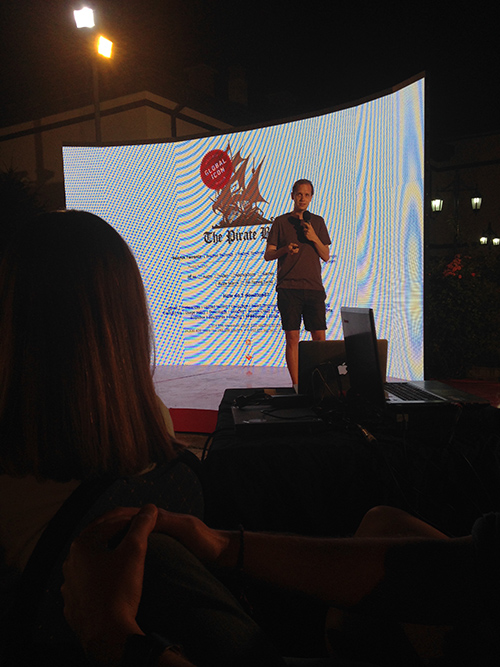Tucked away in the hills of Kosovo is the town of Prizren. Prizren is the host of Doku:Tech – A conference focusing on technology and its role in the future. Speakers this year ranged from tech investor Esther Dyson to Pirate Bay founder Peter (Penter) Sunde.
There were two main topics that seemed to come up again and again; 3D printing, and the control dilemma of having tech play a larger role in our lives.
The general consensus was that 3D printers will play an ever increasing role in the future. For those unaware of how 3D printing works, it is the process of taking a digital blueprint and printing it layer by layer using materials such as plastic to render a finished 3D model. This process can eliminate waste, and even help with inventory and supply chain logistics. For example, small automotive parts currently need to be shipped from their point of manufacturing to the needed location. This incurs shipping costs as well as secondary negative environmental factors such as emissions. 3D printing aims to replace this process where the part can simply be downloaded and printed on site.
3D printing isn’t just for small objects, houses can now be built on-sight. China’s WinSun company was able to print 10 houses in one day – Seen below in a video from RT. The first attempts may not be the most aesthetically pleasing, but this is just the start.
3D printing was talked about heavily in relation to space colonization. Sending building materials on the interplanetary journey simply isn’t viable, speakers Yanki Margalit, and Esther Dyson both stressed the importance of this technology as the only way to build and live sustainably on Mars.
The future of 3D printing is bright. The industry is now experimenting outside traditional materials such as printing human organs, and cartilage implants such as noses and ears.
The question of control and morality was addressed when an audience member set this scenario during the Q&A.
“Your in your self driving car and a child runs out into the road. Does the car veer off the road putting the driver in danger; does it continue its course to keep the driver safe at the expense of the child- and who makes that decision?”
The panel of speakers all agreed that there will be a point that this happens. First it was highlighted that in 2014 alone there were 1.24 million motoring deaths world wide, and that total number will drop dramatically when autonomous driving is implemented. Secondly one panelist told the audience to keep in mind that if an accidental fatality on the road is caused by a human, people soon forgive and forget. However the first fatality caused by autonomous driving has potential to unite opponents and cause large set backs for the industry.
Autonomous cars are being developed by both traditional and non traditional manufacturers. Traditional manufacturers such as Audi have developed “piloted driving” , with four sensors, and an onboard computer processing 8 billion operations a second, that provide the driver the option of using the auto pilot feature- The car is set to be on the market by 2017. The potential has brought tech power house Google into the mix. While others are developing semi autonomous, Google has developed a prototype thats fully autonomous (see video below).
It’s the trade between control and time. As time is the most precious commodity, I expect to see rapid adoption of this technology. Until then keep an eye on the Google Self-Driving Car project, Teslas progression in autonomous driving, and Apples rumoured car development along with more traditional manufacturers.
